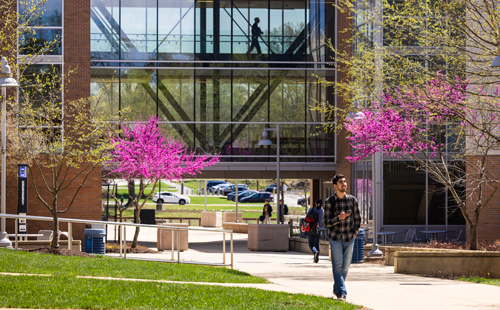At some point or another, every student knows the feeling of sitting in a dreary, tiresome class, hearing stomachs grumble across the room and regretting not eating a healthy breakfast. Suddenly, all eyes wander to the individual walking into class. Actually, they aren’t focusing on the student. The focus is on the plate of baked goods in her hand, which smell heavenly and look equally delicious.
Whether baking a dozen red velvet cupcakes for a friend’s birthday, some delicious fudge brownies for a class party or a chewy batch of chocolate chip cookies for the long renowned tradition of “secret buddy,” much of one’s high school experience actually takes place with a mixing bowl and spatula in hand.
So when students walked into their classes the first week of school and heard that baked food would no longer be permitted in schools, most of them were perplexed and shocked by this newly enforced policy. Teachers told students that baked food would no longer be allowed for class parties; class projects involving food would no longer be part of the curriculum, and secret buddy, the tradition of baking food for a teammate on the day of each game, would now be out of the question.
According to assistant principal Leo McDonald, the baking ban was implemented by MCPS to prevent students from bringing in and distributing any food from home. By requiring all food to come from certified, commercial kitchens, administrators hope to protect students, especially those with food allergies.
However, what administrators and MCPS officials fail to realize is that students are wise enough to make their own decisions about what they will eat. Students with allergies should be more aware and take more caution before eating baked goods; they always have the option to say no. A complete ban on baked food is by no means an effective way to mediate a problem that has always and will always be prevalent in schools and other public venues.
Commercial kitchens are not necessarily cleaner and more sanitary than household kitchens. Store-bought food does not miraculously solve the problem of food allergies or reduce the risk of food-borne illness. After all, store bought food is recalled quite often these days.
By creating an unreasonable ban on baked goods, school officials are spoiling school traditions, like secret buddy and class parties, and ruining good-hearted fun. Before the ban, baking served as an inexpensive means for students to express their creativity and take interest in a leisurely activity that they probably never thought about doing before. If students, particularly those on sports team, must go out two or three times a week to purchase a desert, the costs eventually add up throughout the sports season.
In addition, class parties often served as the only recess in long, tedious weeks of school, allowing students to raise spirit and bring in fun to the usual dreadful classes. Particularly in classes such as Spanish, French and Asian Studies, baked goods served as a means to celebrate diversity and get a feel for different cultures.
More importantly, how will students, especially girls, have nearly as enjoyable of a birthday without a huge bag of baked goods from their friends? All students know that birthdays are nothing without the overabundance of cookies, cake, brownies and pie. Sure, the balloons are a huge plus on birthdays, but they are nothing without the baked goods to accompany them.
While teachers may propose solutions to this ban, such as buying baked goods and bringing in candy, store-bought food does not have as much authenticity and freshness as homemade deserts. Going out to a store to buy a box of store-bought cookies for a friend does not show nearly as much effort as spending 30 minutes or more to personally place a tray of chocolate chip cookies into a hot oven.
Let’s face it, if you had the decision to receive tasteless, bland cookies or a plate of fresh, scrumptious chocolate-cookies, so sweet that they can melt in your mouth, which would you choose? Ninety-nine percent chance says that you would choose the baked cookies and end up with a satisfied stomach, rather than feeling regretful for wasting 500 calories on artificially-flavored cookies with an unpleasant aftertaste. But until MCPS officials fully comprehend the logistics of the matter and the effect it has on students, students will have to get used to the generic and mass-produced so-called-deserts being sold in stores.







